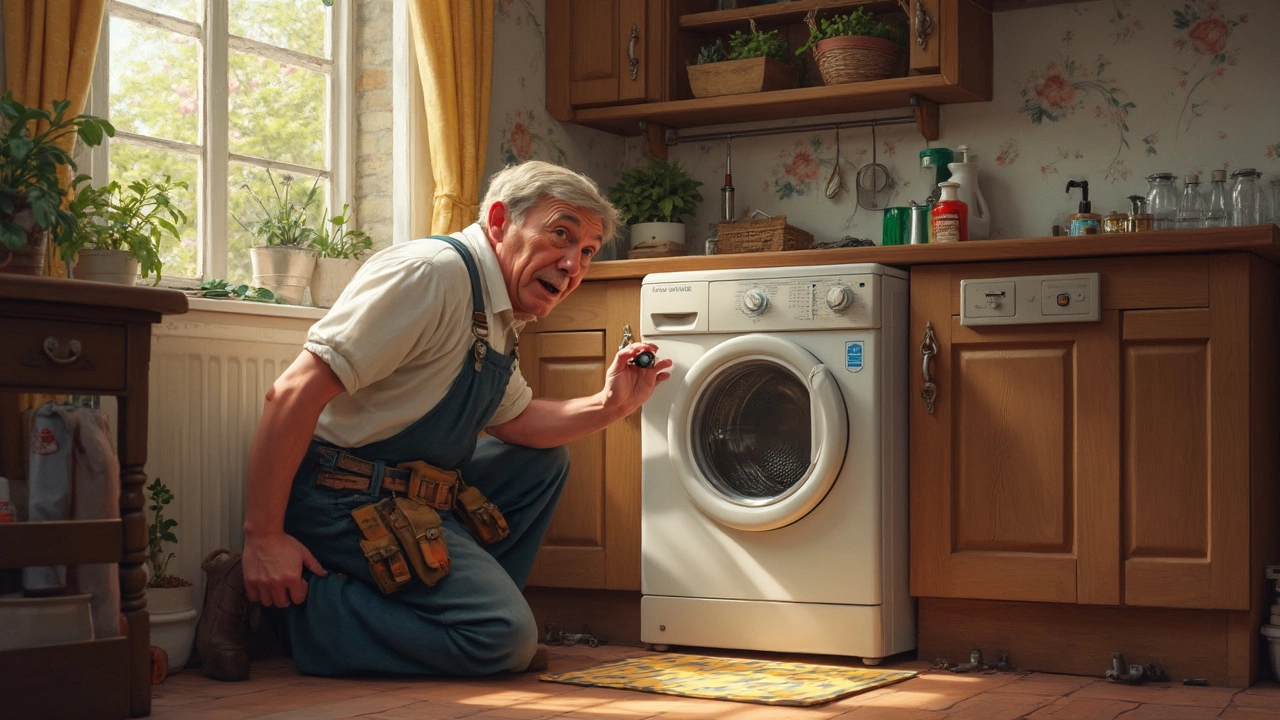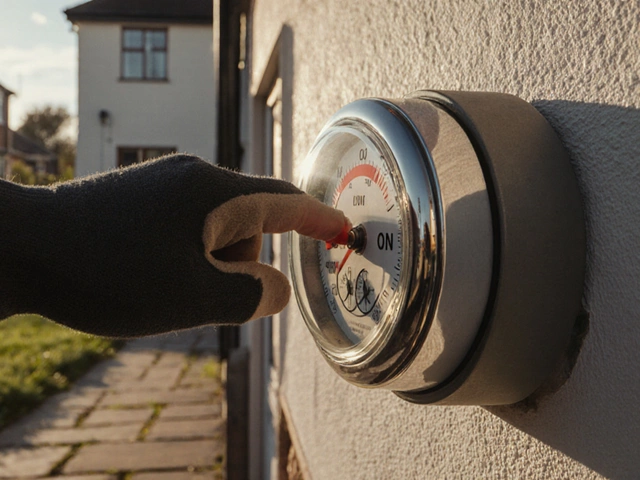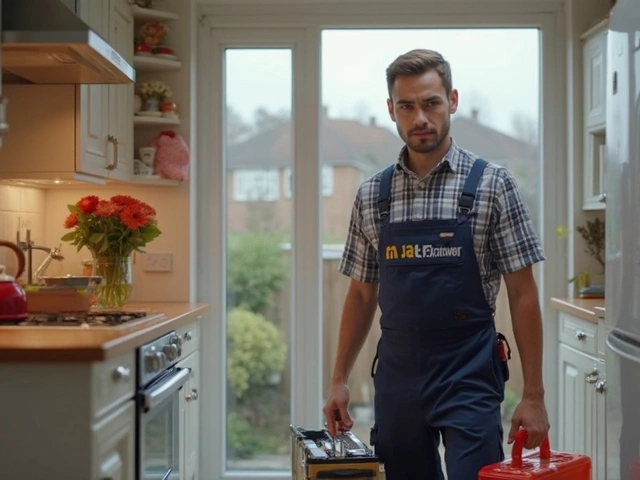The world of appliance service might seem straightforward, but it’s a bit like peeling an onion—there are layers you didn't know existed. At the heart of this operation is the appliance technician, the unsung hero keeping our homes and businesses humming along.
First things first, what exactly does an appliance technician do? It's more than just fixing broken things. They identify the root cause of an issue and figure out how to prevent it from happening again. This means they're expert troubleshooters, and yes, they can probably fix your fridge in the middle of the night.
In addition to repairs, these technicians perform routine maintenance to extend the life of appliances, helping anything from your grandmother's vintage toaster to the newest smart fridge. They also guide customers on how to keep those gadgets running smoothly between professional check-ups. So, they’re not just fixing, but educating too!
- Understanding the Role
- Day-to-Day Responsibilities
- Skills and Training Needed
- Common Appliance Issues
- Tips for Aspiring Technicians
Understanding the Role
An appliance technician is not just someone who walks in with a toolbox and starts working magic. Their role is a blend of detective work, mechanical expertise, and customer service. But what does that really mean?
At their core, appliance technicians are like doctors for your home's unsung heroes—your appliances. They diagnose the issues that keep your fridge from cooling or cause your washer to leave your clothes sopping wet. This diagnostic skill not only requires an intimate understanding of what could go wrong but also staying updated with the latest products and technological advancements.
Troubleshooting might just be their middle name. Nearly 90% of the job involves accurately identifying the problem, which is sometimes harder than it sounds. Imagine a homeowner describing a freezer as 'making a weird noise' and you'll start to get the picture of the challenges they face.
What really sets apart an effective appliance technician is their ability to guide customers post-repair. Educating clients on proper appliance use, performing routine maintenance, or simply explaining why a toaster shouldn’t be used upside down - it's all part of the gig.
Why It's Important
In the age of smart homes, the role of an appliance technician has evolved. Appliances are no longer simple machines. They're sophisticated devices with Wi-Fi connectivity and complex interfaces. An appliance technician's job now involves a fair bit of IT knowledge—resetting, reprogramming, and updating software are sometimes just as important as fixing a broken part.
Beyond the technical skills, there's a degree of artistry involved. No two issues are exactly the same, and a knack for creative problem-solving sets great technicians apart.
Day-to-Day Responsibilities
Ever wondered what a day in the life of an appliance technician looks like? It's a mix of hustle, precision, and a good dose of customer interaction. From morning until the tools are downed in the evening, they're ensuring that life doesn’t grind to a halt because your fridge did.
Diagnosing Problems
First up, a major task is diagnosing issues. This isn’t just about fixing what's broken, it's about understanding why it broke in the first place. Every home appliance comes with its own quirks, and a tech's job often starts with a deep dive into what’s causing all the fuss.
"A good technician isn't just a fixer; they're a detective," says Jeremy Hargreeves, editor of Appliance Professional Magazine.
Repairs and Maintenance
Once a problem is identified, the next step is repair. Whether it’s swapping a part or recalibrating a system, it's all about getting that appliance back up and running. Maintenance also plays a huge part. Think of it as giving appliances a spa day to keep them in tip-top shape! This often involves cleaning filters, checking electrical connections, and ensuring everything’s running smoothly.
Customer Communication
Don't underestimate the power of good communication. Explaining the issue and the solution, including future prevention methods, is crucial. After all, a part of an appliance tech’s role is being a trustworthy advisor. Good communication can transform a technician into the go-to person when things go south.
| Task | Frequency |
|---|---|
| Diagnosing Issues | Daily |
| Performing Repairs | Daily |
| Routine Maintenance | Weekly |
| Customer Support | Daily |
What’s interesting is how these responsibilities shift based on the day. One day could be all about urgent repairs, and the next focuses on scheduled maintenance.
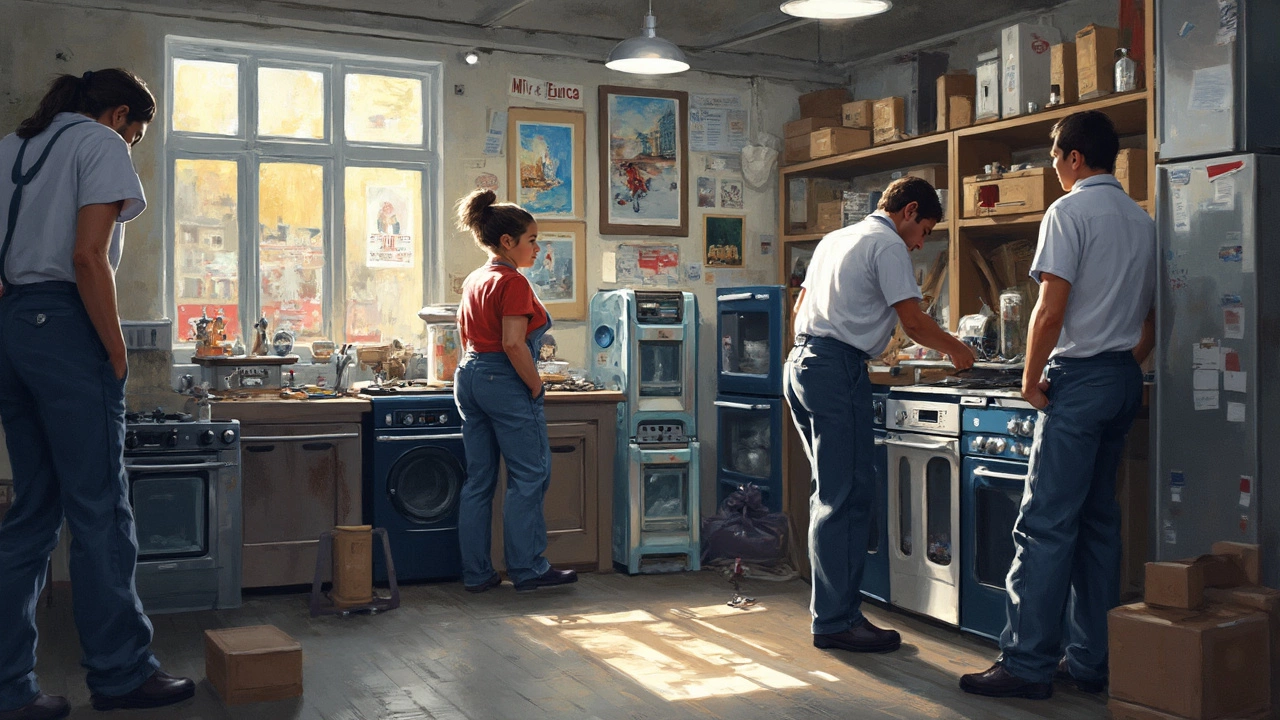
Skills and Training Needed
Becoming a successful appliance technician requires a blend of hands-on skills, technical knowledge, and a willingness to learn continuously. Let's break down what's needed to step into this essential role.
Technical Know-How
The first thing you need is a solid understanding of how various home appliances work. This includes everything from basic microwave ovens to complex HVAC systems. Many technicians get this knowledge through training programs or community college courses that focus on appliance repair. These programs cover appliance structure, electronic systems, and service techniques.
Hands-On Experience
Having theoretical knowledge is great, but nothing beats the real thing. On-the-job experience is crucial. Consider apprenticeship programs where you can learn directly under experienced technicians. These opportunities allow you to tackle real-world problems and learn the tricks of the trade.
Certifications
Certifications aren't always mandatory, but they can give you a leg up. Look into becoming a certified professional through organizations like the Professional Service Association (PSA). These certifications show potential employers and clients that you're serious about your craft.
Soft Skills
Technical skills aren't the whole story. Excellent communication skills are vital. You'll often be the link between the problem and the solution for a homeowner. Listening closely, explaining issues clearly, and demonstrating fixes effectively go a long way.
Ongoing Learning
Technology evolves rapidly. What you learned about repair service five years ago might not hold true today. Many appliance technicians regularly attend workshops or take online courses to stay up-to-date with the latest developments in appliance technology.
Ultimately, becoming a competent appliance technician is about blending knowledge with experience and honing your craft continuously. This way, you'll be prepared to handle any challenge that comes your way!
Common Appliance Issues
Ever wonder why sometimes your appliance technician is as busy as a bee? Turns out, home appliances often run into a whole bunch of common issues, which is where the real work for these professionals begins.
Fridge Not Cooling
This one's a classic. If your fridge turns into a sauna rather than an icebox, there might be a condenser coil issue or a problem with the evaporator fan. It could also be as simple as a faulty thermostat. A technician's job is to find that sweet spot, where cold meets the right temperature.
Washing Machine Leaks
Leaky washing machines can soap up your floors more than your laundry. Often, it’s due to a worn-out hose or a clogged drain pump. It’s a messy scenario, but nothing a skilled technician can't tackle with some quick troubleshooting.
Oven Not Heating
If your cookies are turning into cold dough blobs instead of delicious treats, your oven might need a new heating element. Electric ovens, particularly, may also face issues with the temperature sensor or even the ignition switch.
Dishwasher Won't Start
Sometimes, a dishwasher just gives up and doesn't start. The reasons? It could be anything from a faulty door latch to a burned-out control panel, making it a job for the experts.
Common Fixes in a Nutshell
Technicians often carry a toolkit that resembles a Swiss Army knife—a multimeter, screwdrivers, and a wire cutter are standard. They may even have a spare part or two up their sleeves.
| Appliance | Common Issue | Time to Fix |
|---|---|---|
| Fridge | Not Cooling | 1-3 hours |
| Washing Machine | Leaks | 1-2 hours |
| Oven | Not Heating | Up to 2 hours |
| Dishwasher | Won't Start | Varies |
Knowing these issues isn't just for the repair service pros, but can also help you, the owner, keep an eye on what needs attention. Remember, tackling small problems sooner can prevent bigger headaches later!
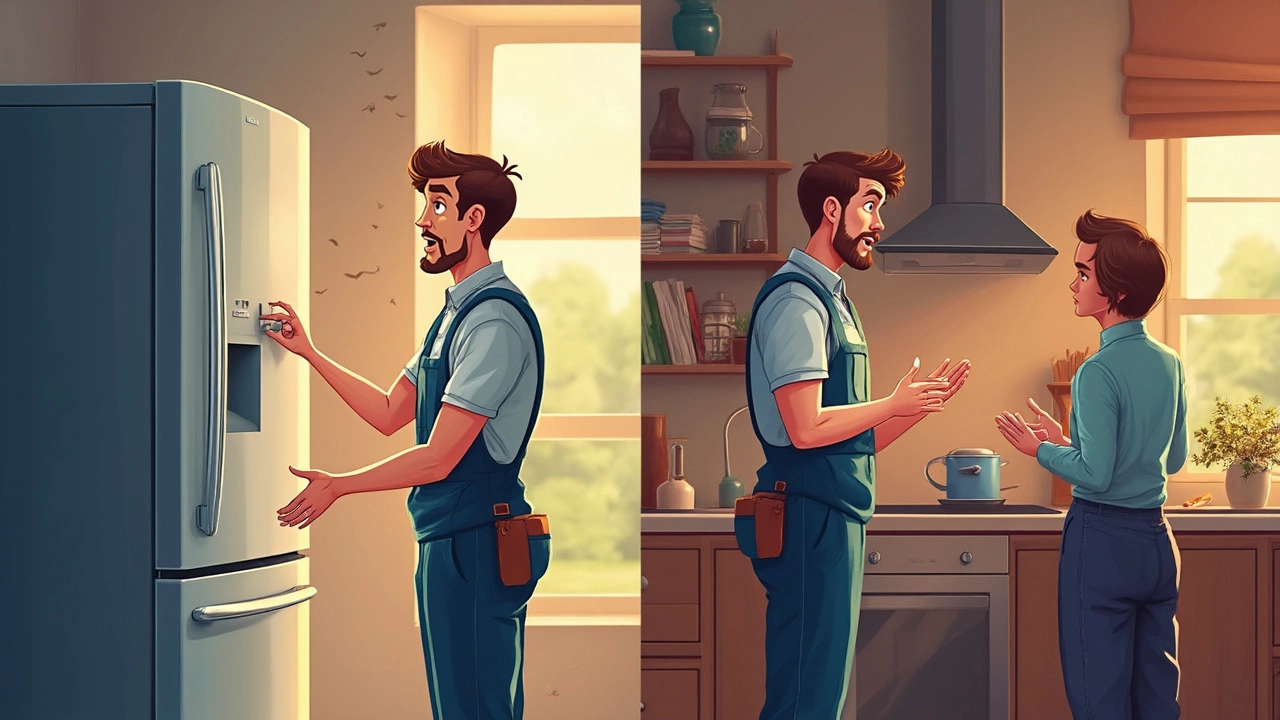
Tips for Aspiring Technicians
Diving into the world of appliance repair? That's a smart move! It's a field that's always in demand. Here's a breakdown of what you'll need and some tips to get your journey started.
Get the Right Training
First off, education is key. Enroll in a certified training program that covers everything from small electric appliances to big commercial units. This is where you'll get hands-on experience and learn the ins and outs of different brands and models.
"Practical experience is what sets a great technician apart. It's not just fixing things; it's about understanding them," says Jane Douglas, a veteran technician with over 20 years in the field.
Certifications Matter
Having certifications like those from the Appliance Service Technicians Association can boost your credibility. It shows that you've met a standard of knowledge and skill that's recognized in the industry.
Stay Updated
Appliances, especially the smart ones, are constantly evolving. Keeping up with the newest technology is crucial. Subscribe to industry magazines or join relevant online forums to stay in the loop.
Hone Your People Skills
An often overlooked aspect is customer service. You’ll be interacting with customers all day, and being friendly and clear with explanations will go a long way in building trust.
Build Your Tool Kit
A well-stocked tool kit is your best friend. Here's a quick list of must-haves:
- Multimeter - for all those electrical checks.
- Basic hand tools - like screwdrivers and wrenches.
- Specialty tools - specific to the appliances you service the most.
With these tips, you're on your way to becoming a top-notch appliance technician. Remember, your skills are needed and appreciated in every household. Happy fixing!

